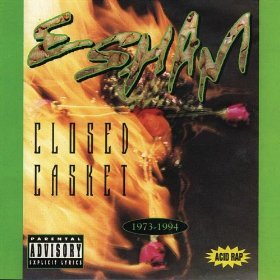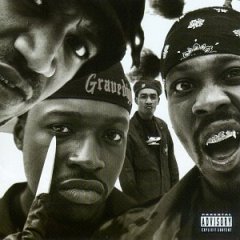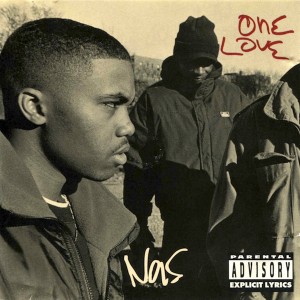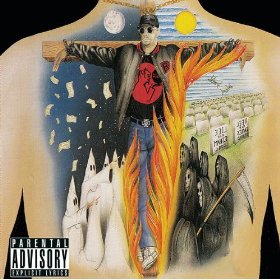Geto Boys was an American hip hop group originally formed in Houston, Texas. They saw commercial success in the 1990s with the lineup consisting of Bushwick Bill, Scarface and Willie D. The group became best known for their 1991 single "Mind Playing Tricks on Me", which peaked at number 23 on the Billboard Hot 100. Formed in 1986, the group was active until the 2019 death of Bushwick Bill.

Nathaniel Thomas Wilson, better known by his stage name Kool G Rap, is an American rapper. He began his career in the mid-1980s as one half of the group Kool G Rap & DJ Polo and as a member of the Juice Crew. He is widely considered to be one of the most influential and skilled MCs of all time, and a pioneer of mafioso rap/street/hardcore content and multisyllabic rhyming. On his album The Giancana Story, he stated that the "G" in his name stands for "Giancana", but on other occasions he has stated that it stands for "Genius".

Horrorcore, also called horror hip hop, horror rap, death hip hop, death rap, or murder rap is a subgenre of hip hop music based on horror-themed and often darkly transgressive lyrical content and imagery. Its origins derived from certain hardcore hip hop and gangsta rap artists, such as the Geto Boys, Gravediggaz, and Three 6 Mafia, which began to incorporate supernatural, occult, and psychological horror themes into their lyrics. Horrorcore is mostly designed to evoke fear and panic out of a listener rather than disgust. Unlike most hardcore hip hop and gangster rap artists, horrorcore artists often push the violent content and imagery in their lyrics beyond the realm of realistic urban violence, to the point where the violent lyrics become gruesome, ghoulish, unsettling, inspired by slasher films or splatter films. While exaggerated violence and the supernatural are common in horrorcore, the genre also frequently presents more realistic yet still disturbing portrayals of mental illness and drug abuse. Some horrorcore artists eschew supernatural themes or exaggerated violence in favor of more subtle and dark psychological horror imagery and lyrics.

Boomin' Words from Hell is the debut album by the American musician Esham. It was released in 1989, and reissued the following year.

Closed Casket is the fourth studio album by Esham, released on November 22, 1994, and distributed by Reel Life Productions/Warlock Records.

Repentance is the ninth studio album by Esham. Released in 2003, it is his first album of new material to be released on Psychopathic Records, and his second album on the label overall, after the compilation Acid Rain.
Esham Attica Smith, known mononymously as Esham, is an American rapper from Detroit, Michigan. Emerging as one of the first ever hip hop artists from Detroit, Esham released his debut studio album, Boomin' Words from Hell, in 1989 at the age of 16. Since then, he has gone on to release 21 full-length studio albums in total and is best known as a representative of the hip hop subgenre horrorcore. In 1992, he co-founded the horrorcore group Natas. He and his brother James Smith founded and ran the Detroit hip hop label Reel Life Productions.

6 Feet Deep is the debut album of the American hip hop supergroup Gravediggaz. Formed by former Tommy Boy Records artists Prince Paul, RZA, Frukwan and Poetic, the group utilized horror-themed imagery and lyrics combined with black comedy and satire to vent their frustrations with the hip hop record industry. The album's concept satirizes the hardcore hip hop and gangsta rap of the early 1990s. Released on August 9, 1994, by Gee Street Records, the album helped usher in horrorcore.
Natas is an American hip hop group from Detroit, Michigan best known as representatives of horrorcore featuring the members Mastamind, T-N-T, and Esham. The group effectively disbanded after the death of T-N-T in 2014. However, Esham and Mastamind have since periodically continued to tour together under the Natas name.

"One Love" is a song by American rapper Nas, released October 25, 1994 on Columbia Records. It was issued as the fifth and final radio single in promotion of his debut studio album Illmatic (1994). The song was produced by Q-Tip of A Tribe Called Quest, who also contributed vocals for the chorus line. According to Nas, the title of the song originates from Jamaican singer-songwriter and musician Bob Marley's song of the same name.

Season of da Siccness: The Resurrection is the debut studio album by American rapper Brotha Lynch Hung, released on February 28, 1995, by Black Market Records and Priority Records.

Tongues is the eighth solo studio album by American rapper Esham. It was released on June 19, 2001 through Overcore Records with distribution via TVT Records. Recording sessions took place at Overture Recording in Michigan. Production was handled solely by Esham. It features guest appearances from Brittany Hurd, Kool Keith, Santos, The Dayton Family, Heather Hunter, Jill O'Neil, Mujahid and Violent J, as well as his Natas groupmates Mastamind and TNT. The album peaked at number 195 on the Billboard 200 albums chart in the United States. The project marks Esham's return to his old horror/devil sound.
Flatlinerz is a horrorcore group from New York City. They are responsible for introducing the term "horrorcore" with their 1994 release U.S.A. .

WicketWorldWide.COM is the fifth album by Natas. Released in 1999, it is the group's last release on Reel Life Productions until 2006's N of tha World. WicketWorldWide.com is credited as one of the greatest hip hop albums of 1999 by XXL magazine.

Spankmaster is the sixth solo studio album by American rapper and producer Kool Keith. It was released on June 5, 2001, through Overcore/Gothom with distribution via TVT Records. Recording sessions took place at Overture Recording in Michigan. Production was handled by Santos, Jacky Jasper, Esham, Marc Live, and Kool Keith himself, who also served as executive producer. It features guest appearances from Jacky Jasper, Esham, Brittany Hurd, Heather Hunter, Laura Ruby and Mary Santos.
Reel Life Productions, also known as Gothom Records, is an independent record label based in Detroit, Michigan most associated with the hip hop subgenre horrorcore. The label was founded in 1989 by James H. Smith and his younger brother, rapper Esham. Since its formation, RLP had released much of Esham's discography, and had been home to a number of other artists, including Natas, Dice, Mastamind, T-N-T and The Dayton Family.
Esham is an American rapper from Detroit currently signed to Reel Life Productions, a label he co-founded in 1989. His discography consists of 21 solo studio albums, eight studio albums as a member of NATAS, three as a member of Soopa Villainz where he is known as "Black Spade", and two as a member of 3 Headed Monster. His solo discography also includes multiple EPs, compilations, mixtapes, singles, and over 50 music videos.

Judgement Day is the second studio album by American rapper Esham, released April 9, 1992. On June 6, 2006, a Judgement Day box set was issued, containing both original volumes and previously unreleased material.

Bootleg: From the Lost Vault, Vol. 1 is the second compilation album by Esham, released on March 28, 2000.
Gary Reed, also known as Mastamind, is an American rapper from Detroit best known as a representative of the hip hop subgenre horrorcore. A founding member of Natas, he was formerly signed with Reel Life Productions before forming his own label, Toxsic Records.












